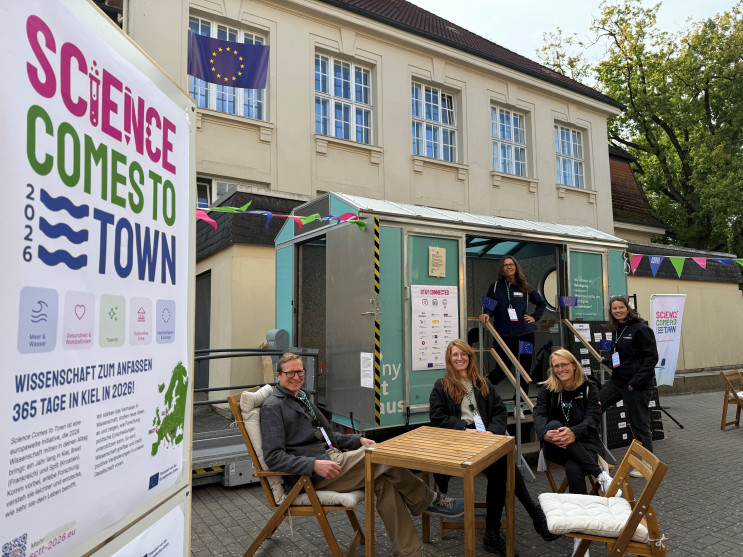Today’s European Researchers’ Night highlights an exciting new chapter: in 2026, the cities of Brest (France), Kiel (Germany), and Split (Croatia) will proudly take on the role of European science ambassadors. But what does this mean exactly? Throughout 2026, the three cities will host over 1,000 science-related events open to all audiences, thanks to the support of more than 70 partner organisations.
The researchers nights offers a glimpse of the exciting programme ahead: six university sessions will be held in the three cities inviting children to explore science-related themes. A co-creation call will be launched for projects, awarding up to €1,000 to the twelve selected projects in each city. Additionally, a science-themed competition called Science Battle will be organised, culminating in a final showdown between teams from each city hosted in Kiel.
"The ERN marks the start of a very special year of activities in 2026. With Science Comes To Town, we are bringing science directly to the people of Kiel, Brest, and Split - visible, tangible, and connected across Europe. The KielRegion stands for maritime research, innovation, and social dialogue. This project shows how strongly science shapes our daily lives and how much potential there is in cross-border cooperation," emphasizes Ulrike Wielatt, Managing Director of KielRegion GmbH.
About the project
The European project "Science Comes to Town", funded by the European Union, is built around three core objectives: , bridging the gap between science and public policy, and encouraging dialogue between local authorities and citizens on science and research and innovation, and between the research and business sectors, and foster scientific and research careers for younger generations.
Showcasing science in all its forms: that is the ambition of the project. From oceans to health, social science to culture, science will be explored through diverse themes, including crosscutting topics such as European cooperation and sustainable development. The goal is to reflect the deep and ever-present role science plays in our daily lives and collective history.
Designed to engage a wide range of audiences - researchers, students, children, businesses, and the general public - the programme will offer a rich and dynamic calendar of events. All information will be available on the official website, transcribed on local websites and on social media platforms (LinkedIn, Instagram, YouTube).
"Science Comes to Town" is a collaborative project that transcends borders. New event formats will be co-developed, mirrored activities will be hosted in the three cities and knowledge-sharing opportunities will be created for professionals and science communicators. The partnership between Brest, Kiel, and Split is no coincidence. Already united through the SEA-EU European University Alliance, the cities also share a strong maritime identity, rich historical backgrounds and deep-rooted local cultures.
These shared values have allowed them to design an ambitious and sustainable action plan, aiming not just to celebrate science in 2026, but to establish long-lasting impact well beyond.
EU funded:
Funded by the European Union. Views and opinions expressed are however those of the author(s) only and do not necessarily reflect those of the European Union or the European Research Executive Agency. Neither the European Union nor the granting authority can be held responsible for them.
Project Contact:
sctt@kielregion.de
